The Golden Rule, as spoken by Jesus Christ and similarly echoed across great traditions:
“Thou shalt love thy neighbor as thyself.”
A tall order at all times and in every way.
Years ago and we’re sick, with our nearly infant eldest ill as well. One of his uncles rushes out to get a myriad of meds to help him on our behalf, and then refuses recompense, “Oh, no, I love that little dude, I’d do anything for him.” The uncle is a good neighbor, and is so with his kin with whom he ought to be close. The moment is etched upon my heart.
Corruption and Exploitation
We are taught from a young age that all men are created equal1, that we should judge everyone by their merits and nothing more, and that most Christian teaching which comprises the whole of the law. We remember and live the Parable of the Good Samaritan; we reflect upon Christ and His disciples meeting the demoniac and giving him their clothes. The demoniac was naked and yet after encountering Christ and being found of right mind he is remarked upon as being clothed. Where did those clothes come from?
This emphasis on equality, treating others charitably, and being compassionate with those we meet is twisted into something else entirely. We are roused to anger over events happening half a world away to people we don’t know, to those we don’t have anything in common with, and we feel righteous when we break sweat upon our brow and write a cheque of which five cents on the dollar2 might go to use for people who are in strife.
Writing a cheque is easier than going to the grocery store and buying water and food for the homeless and then going to meet them. Slapping a flag on one’s social media profile still feels good and one’s hands don’t have to be dirtied at the soup kitchen in service of the poor.
Through the mechanisms of abstraction and universalism we reduce our relationship networks from the normal, natural, and healthy state where we are most attached to and owe the most to our relatives, our community, those we are in contact with and expand it into the notion that with all humans being equal all our personal human relationships and obligations are equal. Perhaps, perhaps, we except a few of our closest relationships and show obvious favor for our wife and children. Remove oneself a little bit and we can see that we are expected not to favor our own countrymen’s well-being and livelihoods. This is most obvious in the political arena - both major parties go to bat for foreign countries, one obviously corrupt, the other embroiled in an ancient ethnic conflict and fill the coffers of those in other lands as well as our most connected corporate entities3. In the meantime they sneer at the concerns of those at home about sending our money and munitions abroad for what benefit to the common American?
Zoom in a skosh to the city - a community on a much smaller scale than the nation writ large. How many cities have embraced policies which sound compassionate at the outset and yet burden the people who live there and comprise the heart of the city itself with a lack of safety, outright crime, or physically repulsive situations. Is it compassion to import ten thousand homeless and burn resources to no avail on those who have burned every friendship and couch they could have surfed due to their personal demons? It’s easy to vote YES to allowing homeless encampments and giving them housing - it’s not so clear when children are picking up needles off the benches in the playground. If I’m not supposed to favor any one person over another - not my fellow citizen over some poor Slav taking my job (think about how much they’ll benefit compared to me! The free market ideal!) - then why should I favor a daughter or son of my own over Brett the addict who moved into a tent down the street? After all, we’re all the same.
In the modern day we’re often distant from our physical neighbors, disconnected from our coworkers, in a rush to get home after liturgy, or just overwhelmed with business and a feeling that there’s no time to spend on anything. Still, we feel bad about this disconnectedness and isolation and seek to redeem ourselves in our own eyes. I stand with {CURRENT_EVENT_COUNTRY}.
We can trace this lineage through recent history. Granting geo-strategic enemy China most favored nation status:
Think about how much better off all those people in China will be with those manufacturing jobs and infrastructure. We’ll just retrain Bob here, who has worked the assembly line for twenty-five years, for the service economy!
We can peer into the near future and see the levers they will use to further degrade a once trusting nation, and to stamp a boot in the faces of our middle class:
There are climate crises and climate refugees need somewhere to go, you live in the wealthiest country on the planet; surely you can afford to let in and take care of a few tens of millions?
Sanity
“‘for I was hungry and you gave Me food; I was thirsty and you gave Me drink; I was a stranger and you took Me in; I was naked and you clothed Me; I was sick and you visited Me; I was in prison and you came to Me.’
[…]
‘Assuredly, I say to you, inasmuch as you did it to one of the least of these My brethren, you did it to Me.'” Matthew 25:35-40
Here we have the basis for much of the West’s, and America’s, philanthropy; and the means of exploiting the average every day person. We are made to feel responsible for the condition not just of our neighbor, of those we can directly help and have responsibility for, but for the entirety of mankind. As if any one human being could simultaneously feel they must sacrifice everything at home to prop up a warring party in a situation they know nothing about and are not a part of: as if the plight of starving children abroad is somehow greater and more important than the selfsame thing in one’s backyard. It is easy to turn a blind eye to how little we actually help those around us and pretend that we are good people by showing support or performing some six degrees of separation maneuver4 to show how closely we’re tied to what’s going on.
“But if anyone does not provide for his own, and especially for those of his household, he has denied the faith and is worse than an unbeliever.” 1 Timothy 5:8 (on caring for widows, the elderly, & etc)
I am worse than an unbeliever. I turn a blind eye to suffering in the streets. I glide past the homeless5, I refuse to serve the poor, I don’t even deliver meals to the sick in my community or even my church. I am so disconnected that it’s unlikely I’ll hear if someone I know is sick.
Even when I am charitable I keep things in a comfort zone. My brother-in-law’s Ninja 250 sits for over a year and I had offered to repair his clutch when it went out. He bought a basket case and it feels like things have been going wrong and getting worse all the time - no confidence to make it better. I like fixing things and restoring them to operation. I am comfortable enough turning a wrench, and I think it might be a fun thing for me to do with the memory of how willing he was to help us when we were in need. Am I being a selfless altruist by using my time and talent to get him back on his motorcycle or am I being selfish and fixing it for fun? Perhaps both, and yet, I think that serving him is a step on the right path. While I was working on that bike I spent the least amount of time in a long while on the only website that matters, Twitter DOT COM, and was the better for it. Imagine my surprise at logging in and seeing there was some conflagration in the Middle East.
It is tragic, yes, and those people are not my neighbors. I can condemn the murder of innocents and yet not be raised to shouting rhetoric about killin’ ‘em all on either side of the conflict. What am I, ten thousand miles away, supposed to do? My own neighbor calls me Steve and I don’t know why or where he got this name lodged in his mind. My name ain’t Steve - but I do want him to report that name to the police in the event I ever go completely off my rocker.

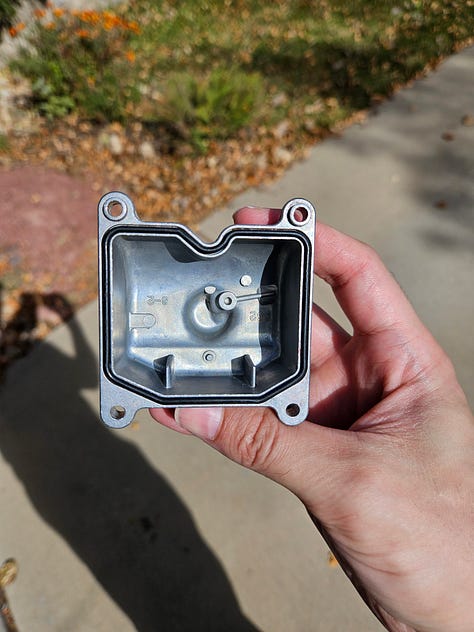



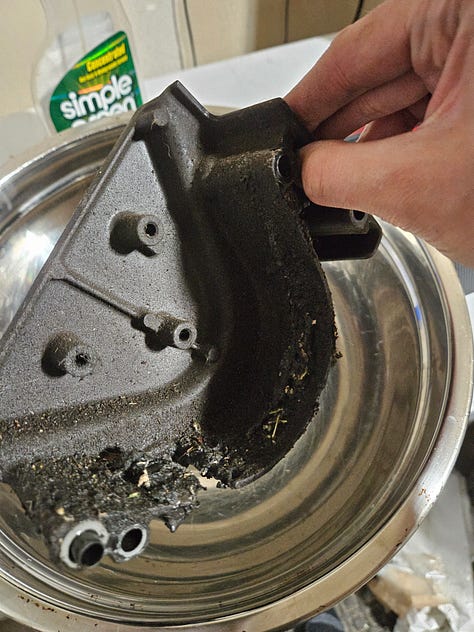

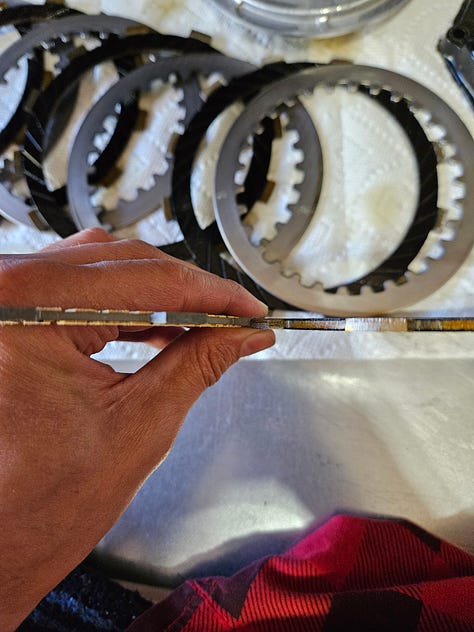
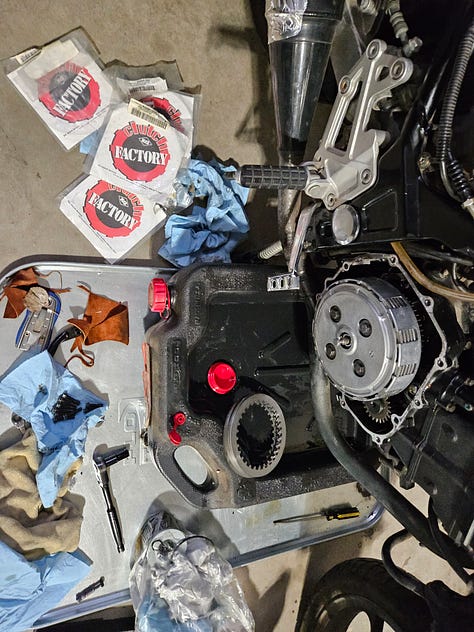
Carefully leaving out in what ways they are equal - before the law; in the eyes of God so far as personal love and worth
I made it up but it is directionally accurate for most organizations that little end effect occurs on a per dollar basis
https://www.adamtownsend.me/ukraine/#CHAPTER_9_UKRAINIAN_AGRICULTURE_AND_THE_TRAIL_OF_TEARS A chronicle by a guy who has his biases but is level headed and writes things down so as not to forge
my third cousin’s brother-in-law volunteered and I paid for his flight!
Forever reminded of the time I offered donuts I had just bought to a homeless man who, patting his belly, said, “Oh, no thanks, I just had some.” C’mon, guy, at least keep one for later!







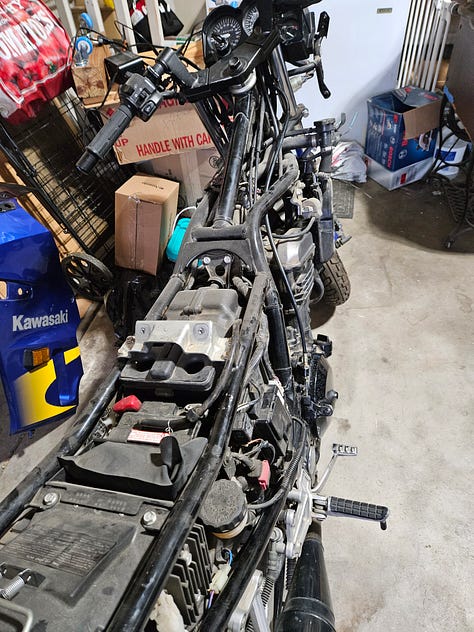






I'm not about scripture or religion, but I can definitely relate to the six degrees of separation maneuver, and that it is pathetic.
Exceptionally well said on all counts.